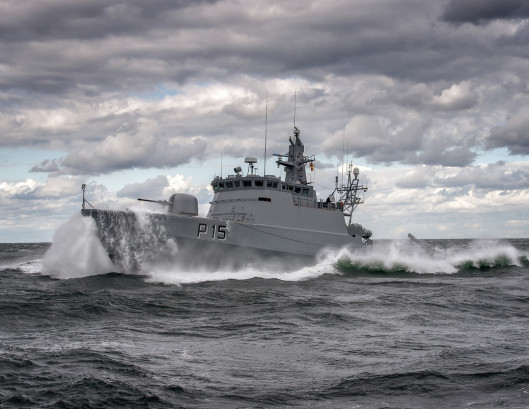News
The maritime industry, science and military experts of the State are joining forces in a unique format with the aim to create a conceptual design for a new generation Navy ship. On 15 February – the eve of the Lithuanian State Restoration Day – a cooperation agreement on the implementation of this innovative technology project will be signed in Klaipeda.
The initiator of the Lithuanian Warship 2030 project is the Lithuanian maritime cluster, which currently pools 12 members representing domestic and foreign business organizations, as well as science and innovation agencies. ‘As the start of the project coincides with the celebration of the 100th anniversary of the Klaipeda region incorporation into Lithuanian State, we have an additional impulse to reflect on the significance of being a maritime country. A more active participation of the Lithuanian maritime industry and science agencies concentrated in Klaipeda in the State security and defense projects is undoubtedly very important. Klaipeda is ready to step in with its experts and developed industry,’ said Arnoldas Šileika, Chairman of the Board of the Lithuanian Maritime Cluster.
The agreement will consolidate the cooperation between the cluster and the Naval Forces of the Lithuanian Armed Forces within the framework of this project. ‘The goal that we will pursue together with our partners has been generated in view of the plans to modernize the Lithuanian Naval Fleet, as well as to properly utilize the expert knowledge in specific military areas accumulated by us and the potential of Lithuanian maritime industry, science institutions and innovation centers. The solutions in the implementation of the project of the new generation warship will be aimed at meeting the needs and challenges of the Naval Forces and enabling to effectively solve both nationally relevant tasks and those set by the NATO,’ said Giedrius Premeneckas, Sea Captain, Commander of Naval Forces.
The parties will undertake to cooperate in the areas of exchange of professional knowledge and skills, as well as organize joint working groups, deepen competencies during specialized events, and share proposals.
‘The activities of the cluster are primarily aimed at creating high added-value solutions and, therefore, we see the project of the new generation Navy ship as a platform for opening new opportunities by making use of our already accumulated knowledge and experience,’ emphasized Andrius Sutnikas, the Development Manager of the Klaipeda Science and Technology Park, coordinating the activities of the Maritime Cluster.
Consortium members hope that the Lithuanian Warship 2030 project will also contribute to the creation of new perspectives for the maritime business and the entire maritime innovation community, as the competitive project would gain commercialization potential.
